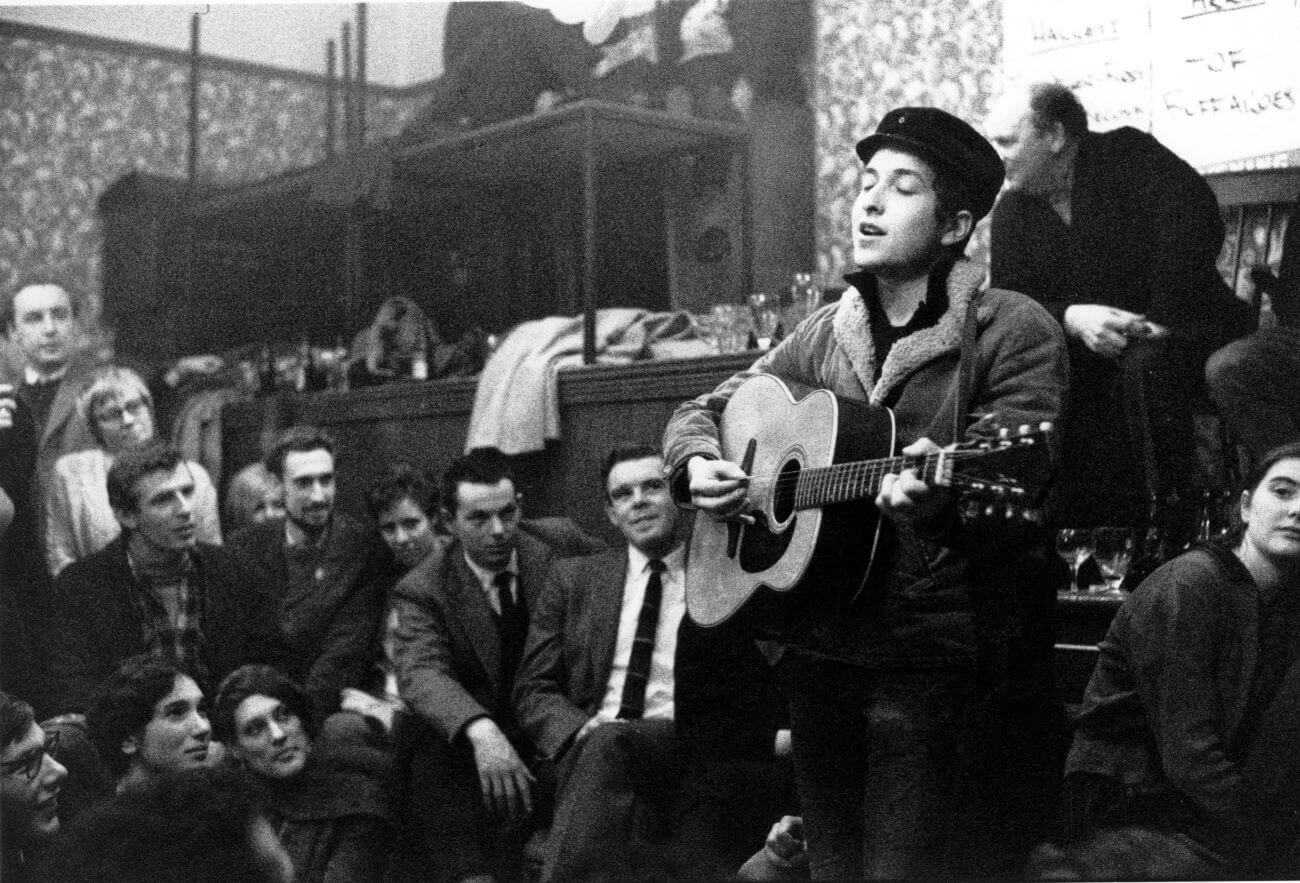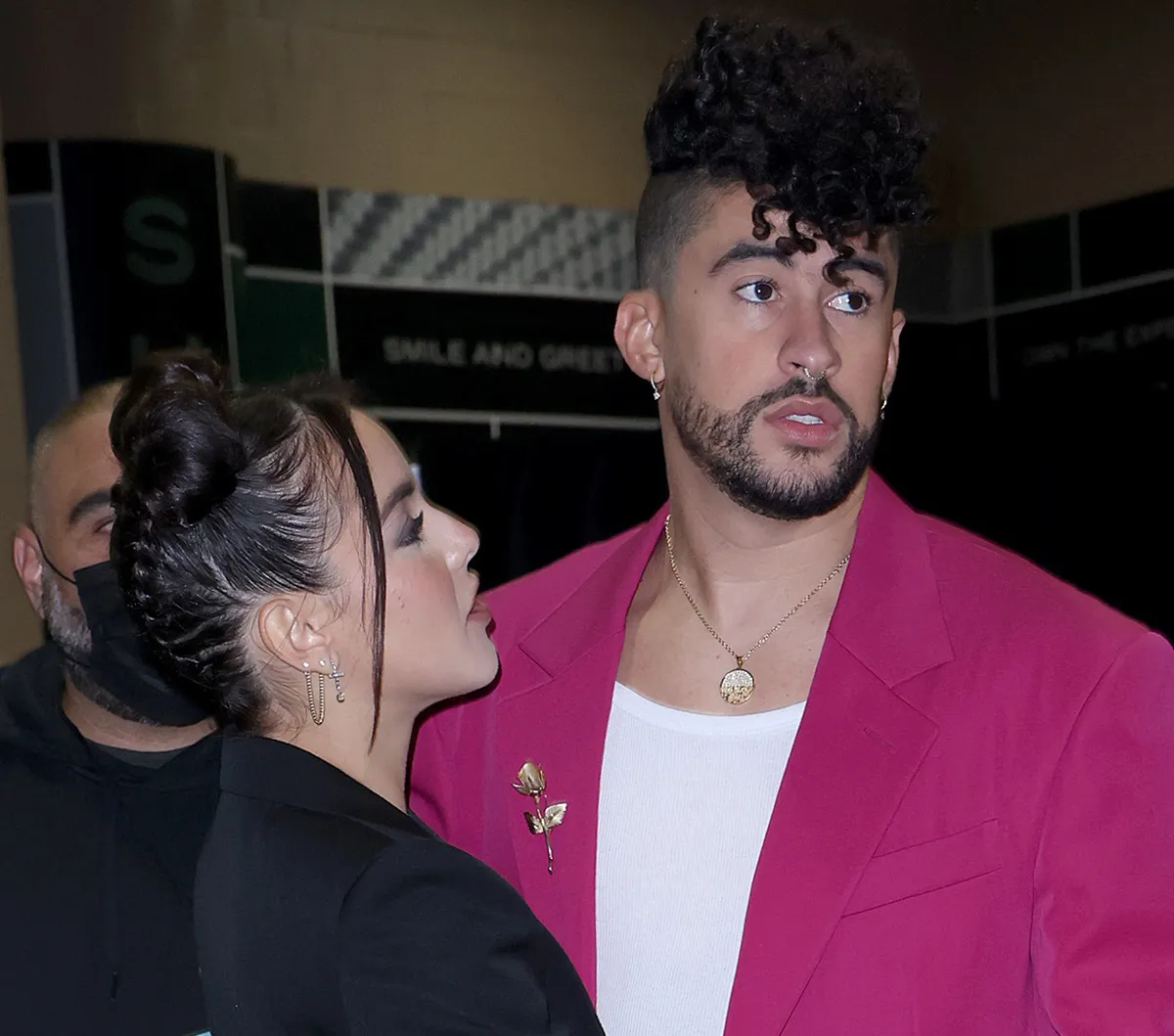
Bob Dylan Revealed the Musician Who Changed His Life: ‘It Made Me Want to Gasp’
Many musicians point to when they first heard a Bob Dylan song as an important moment in their development as songwriters. Dylan’s writing won him a Nobel Prize — his skill and influence are unquestionable. When Dylan was young, the artist that influenced him the most was Woody Guthrie. Dylan said that hearing Guthrie’s songs changed everything for him.

The musician’s friends helped him expand his musical tastes
Dylan briefly enrolled at the University of Minnesota after graduating from high school. His goal was to become a musician, even writing in his yearbook that he wanted to run off and join Little Richard, but he went to college to appease his parents. He joined a fraternity and sporadically attended class, but his true interests lay in the Minneapolis music scene.
He frequented the Ten O’Clock Scholar, where many of the city’s folk musicians gathered. Here, he met a number of artists who introduced him to new music, writers, and poets. Dylan spent hours listening to music, even resorting to stealing records from his friends so he could memorize songs. Per the book The Ballad of Bob Dylan: A Portrait by Daniel Mark Epstein, Dylan began referring to himself as “a musical expeditionary.”
Bob Dylan said one musician changed his life
Of all the artists Dylan discovered, the most impactful was Guthrie. His partly-fictional autobiography Bound for Glory fascinated Dylan. Guthrie’s music transfixed him even more.
“I put one on the turntable and when the needle dropped, I was stunned-didn’t know if I was stoned or straight,” Dylan wrote in his memoir Chronicles: Volume One. “What I heard was Woody singing a whole lot of his own compositions all by himself … songs like ‘Ludlow Massacre,’ ‘1913 Massacre,’ ‘Jesus Christ,’ ‘Pretty Boy Floyd,’ ‘Hard Travelin’,’ ‘Jackhammer John,’ ‘Grand Coulee Dam,’ ‘Pastures of Plenty,’ ‘Talkin’ Dust Bowl Blues,’ ‘This Land Is Your Land.’ All these songs together, one after another made my head spin. It made me want to gasp. It was like the land parted.”
While Dylan said he had heard Guthrie’s music before this, listening to them all together was “earth shattering” for him.
“The songs themselves, his repertoire, were really beyond category,” Dylan wrote. “They had the infinite sweep of humanity in them. Not one mediocre song in the bunch. Woody Guthrie tore everything in his path to pieces. For me it was an epiphany, like some heavy anchor had just plunged into the waters of the harbor.”
Bob Dylan changed his image after hearing the other musician’s songs
Dylan also said that as he was listening to Guthrie, he discovered a new path forward for himself.
“That day I listened all afternoon to Guthrie as if in a trance and I felt like I had discovered some essence of self-command, that I was in the internal pocket of the system feeling more like myself than ever before,” he wrote. “A voice in my head said, ‘So this is the game.’ I could sing all these songs, every single one of them and they were all that I wanted to sing. It was like I had been in the dark and someone had turned on the main switch of a lightning conductor.”
In the earliest stages of his career, Dylan did all he could to be like Guthrie. He moved to New York, where he sought out his idol. He sang Guthrie’s songs in performances, dressed like him, and even affected an accent to sound more like him. Dylan told a friend, Tony Glover, that “it was an act, but only for about two days.” After that, Dylan admitted that “It was me.”
When Dylan eventually began performing his own songs, Guthrie’s influence on his writing was clear. Guthrie’s songs took on anti-fascist themes, so Dylan became a protest singer early in his career. He eventually grew into a musician in his own right, but Guthrie’s influence made Dylan into the artist he is today.


